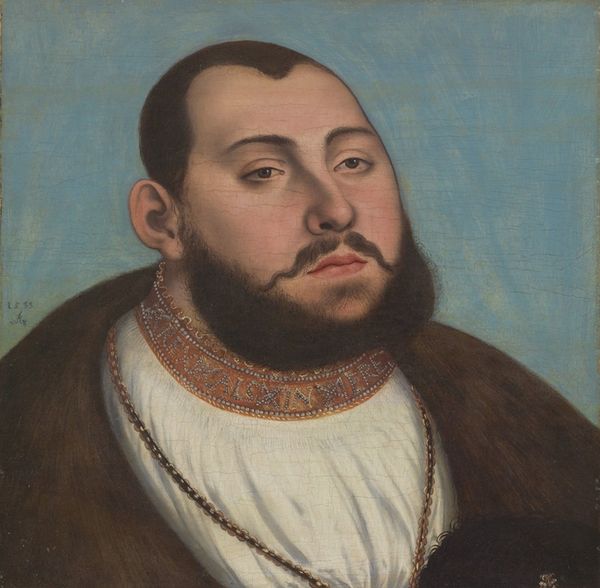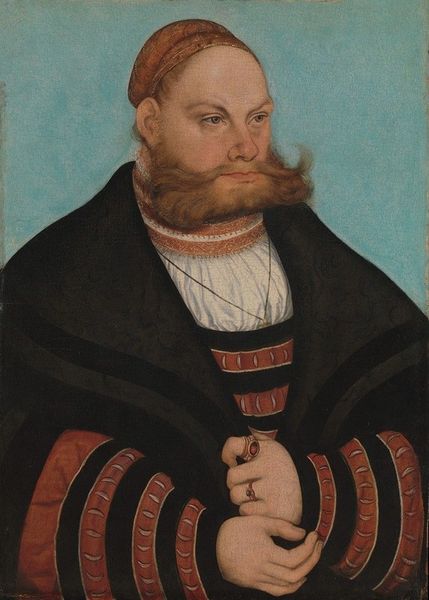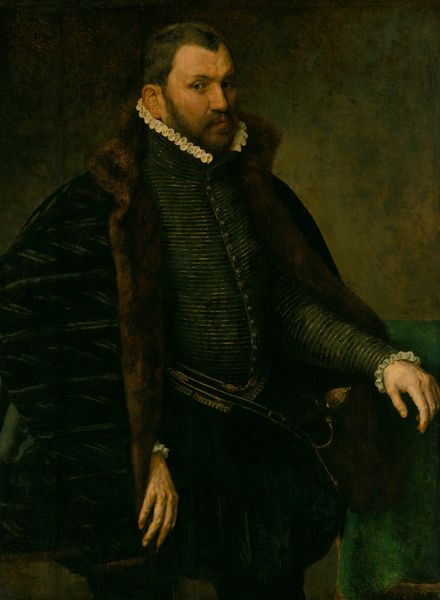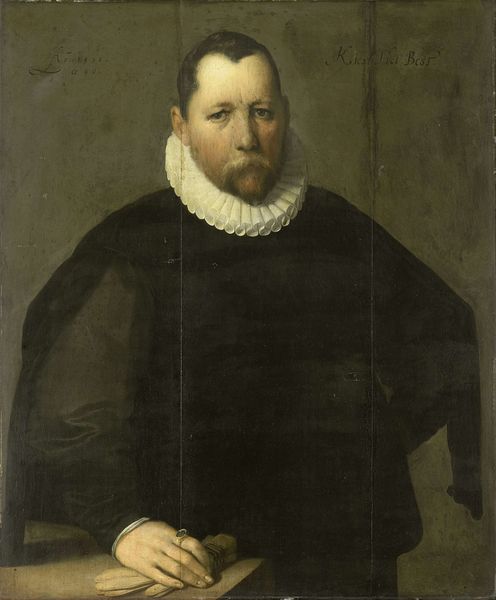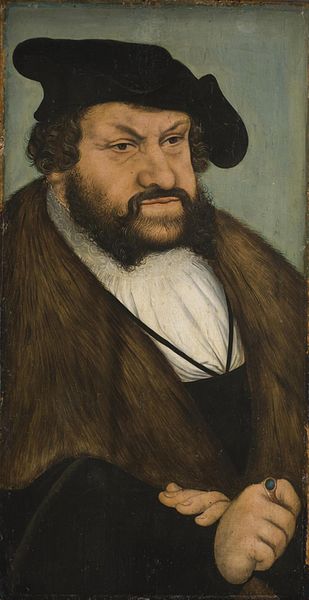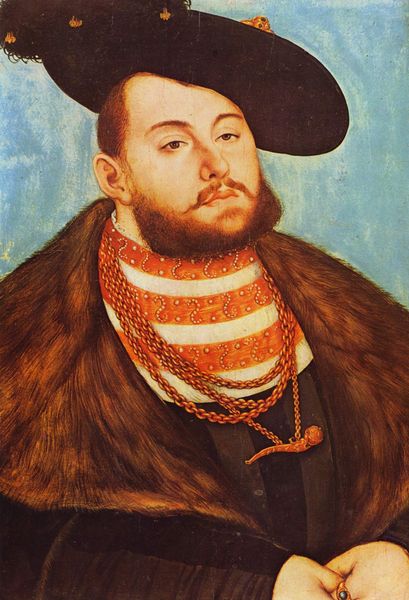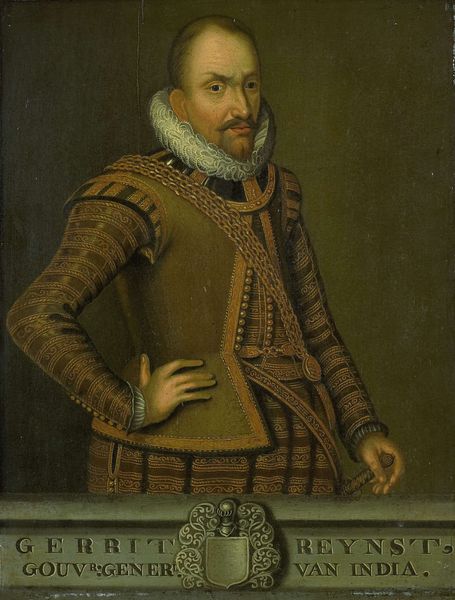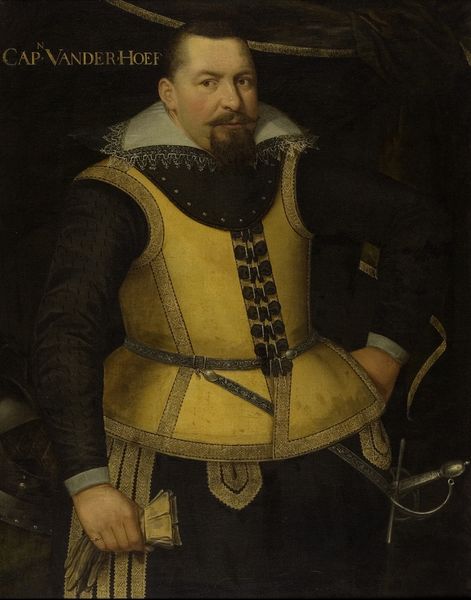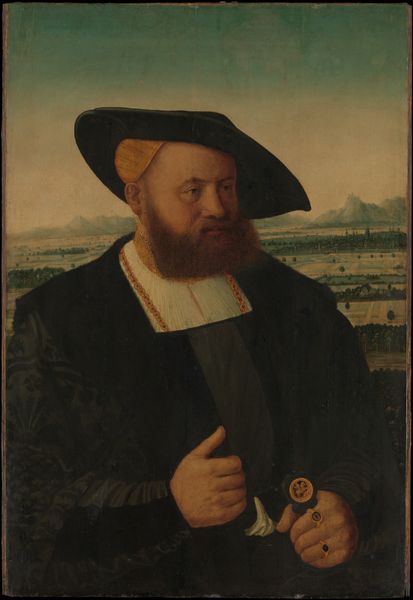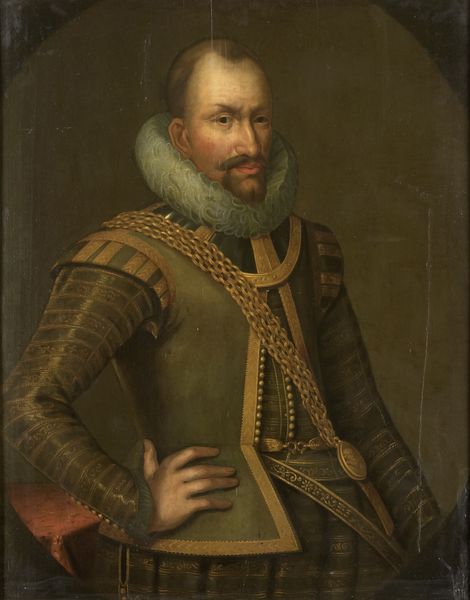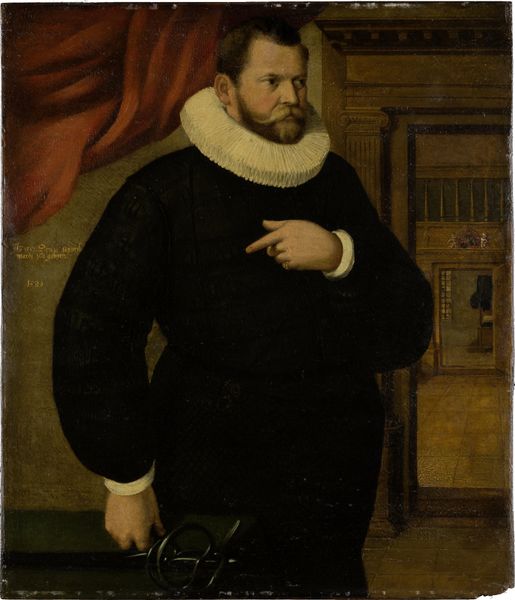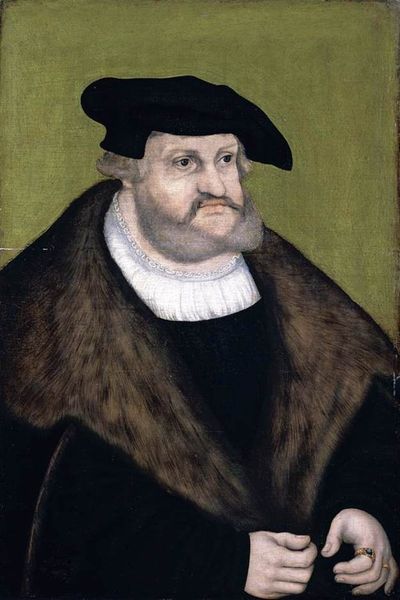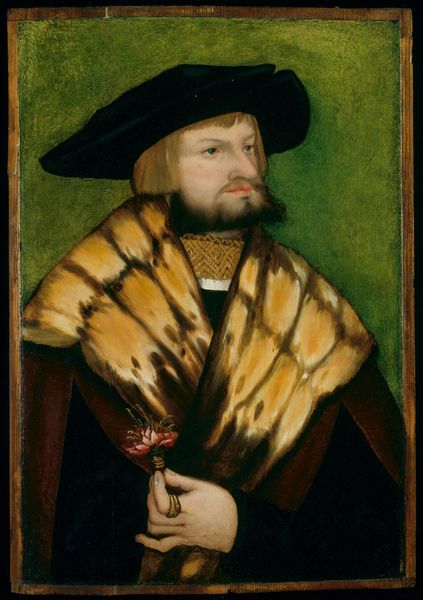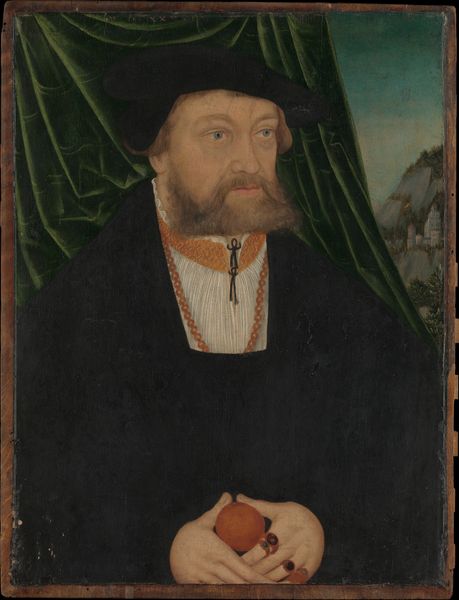
Portrait of the Elector John Frederic the Magnanimous of Saxony (1503-1554) 1533
0:00
0:00
painting, oil-paint, wood
#
portrait
#
painting
#
oil-paint
#
figuration
#
11_renaissance
#
wood
#
history-painting
#
northern-renaissance
Dimensions: 20 cm (height) x 14 cm (width) (Netto)
Lucas Cranach painted this small portrait of John Frederick the Magnanimous in 1533. Note the opulence of his attire: the heavy fur, the intricate gold collar, and the delicate rings, all symbols of status and power in Renaissance Saxony. Consider the gesture of his hands clasped together. It's a posture we see echoed through centuries, from ancient Roman statues to later Renaissance portraits. This gesture speaks to something universal, doesn't it? A composed self-restraint, a quiet assertion of authority. Yet, how different this is from the open, expressive gestures we find in, say, classical Greek sculpture. Here, the control is palpable, indicative of the shifting cultural values of the Reformation era. The gaze, too, is significant. It’s direct yet reserved, hinting at the complex inner life beneath the surface. Such an expression engages us on a deeply psychological level, drawing us into the subject’s world. These visual motifs—the hands, the gaze—they recur and transform, reflecting our ever-evolving understanding of power, identity, and the human condition.
Comments
No comments
Be the first to comment and join the conversation on the ultimate creative platform.
